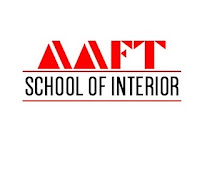Textile industry is amongst the oldest and largest sectors
in India. It is a high yielding sector with immense contribution to the
country’s economy. It is associated with the production and distribution of textiles
made from different raw materials, such as, fibres, threads, yarns, etc. These
are then used to make day-to-day utilities like blankets, towels, carpets,
rugs, baskets, curtains, automotive upholstery, bags, cords and more.
Being a popular domain,
the demand for skilled experts who can bring innovation in this field is always
high here. With technological advancements, there has been a paradigm shift in
the way fabrics were manufactured, combined and distributed. Textile design courses
offer interested aspirants with in-depth knowledge of relevant aspects, such
as:
- · Different types of natural and synthetic raw material like fibres, yarns, threads, etc., and their properties and use
- · Manufacturing processes such as weaving, knitting, spinning, felting, braiding, bonding, netting, tapestry, etc.
- · Printing processes like stencil work, block printing, roller printing, screen printing, spray printing, etc.
- · Dyeing, Color science and grading
- · Sketching and Illustration
- · CAD
- · Merchandising
- · Marketing, and more
Thus, pursuing a professional education program allows students to gain in-detail knowledge on the industry work operations and environment. This lets them understand the various associated roles and responsibilities. They also become familiar with the challenges, scope, demands and competition prevailing in the field.
AAFT School of Fashion
and Design is amongst top education platforms dedicated to foster
industry-oriented training in this craft. It offers tailor-made degree and diploma in textile designing.
One can join a learning program right after completing 12th. Its
state-of-the-art infrastructure facilities and practical training modules
impart hands-on experience to the students through which they can learn and
master this craft. This helps them in becoming industry-ready and take steps to
build a successful career in this industry.



















0 comments:
Post a Comment